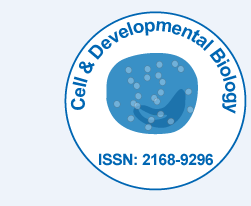
Cell & Developmental Biology
Open Access
ISSN: 2168-9296
+44 1478 350008

ISSN: 2168-9296
+44 1478 350008
Da-Yong Lu, Ting-Ren Lu and Shan Cao
More than 90% cancer deaths are caused by cancer metastasis. As cancer metastasis is the main cause of human deaths, we shall pay more attentions on it. Currently, treatment and chemotherapy are focused on primary tumors rather than metastatic processes. Antimetastatic drugs are often used as assistant therapy. So cancer patients’ survivals have been improved very little. To change this mindset, we highlight this problem by giving new perspectives and try to improve the outcome of chemotherapy of cancer patients from different possible ways. Human cancer metastasis is a long-evolving, multi-steps process that can only be treated or controlled by drugs or immuno-modulators by now. Human neoplasm metastasis, at least a month-long course, encompasses several different substages and affects or being affected by numerous genes and molecules. We have found that each drug or immuno-modulator might act differently within the various stages of a metastatic course. We, therefore, suggest that future antimetastatic therapy should be strategically optimized according to characteristics of metastatic processes in order to reach maximum therapeutic benefits. In this view, we propose, address and support this issue by using past literature evidence, our experimentations and existing biological, anatomical and pathologic characteristics.